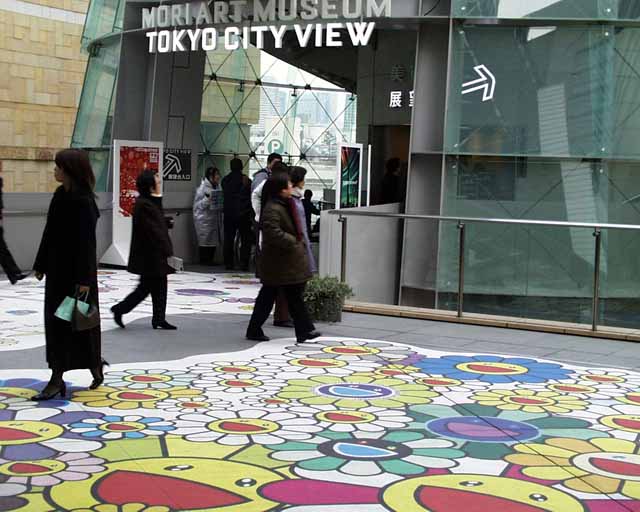Roppongi HillsBefore we get to the picture, lemme tell you 'bout Roppongi, a district of Tokyo. Japanese call foreigners 'gaijin' which means, literally, 'outside people.' I've heard Roppongi characterized as The Land of Gorgeous Gaijin. There's two types of gaijin in Japan -- those like me who're fascinated by the country, and love travel and living there; and people on business who like it as not would rather not. A standard of popular Western entertainment involves the travails of the latter; "Lost in Translation" is merely the most recent -- like "Shogun," it's the pleasant type which shows the travelers' growth, from ignorant disinterest to appreciation of things Japanese. As we're all more cosmopolitan this type of story gets harder to do; now that we've all become accustomed to things like raw fish, all that's left is tales of the unexpected warm jet in the high-tech toilet seat, or (as in "Lost") mockings of the Japanese accent. But anyway -- for some reason the Roppongi district of Tokyo has become a gaijin ghetto, where lots of young, good-looking foreigners can be found, who've snagged employment in the entertainment field (either on-screen or in hostess bars) and my understanding is, these are generally people in the second category, they're just there to do a job. So, sure, I've been to Roppongi, but avoid it 'cause that's not what I'm there for -- I'm overseas to get away from American voices -- but to lots of tourists, it's a magnet, 'cause they've heard about it from fellow travellers, maybe even know somebody there. But besides a lot of nightclubs (like Gas Panic, everybody knows that one) and the corner with the Almond Coffee Shop (its pink-and-white stripped awning being a traditional meeting point) there's nothing there of note, until now.
Something new and big called Roppongi Hills has just
opened, so naturally I had to check it out. I'd only
allocated a little time, just enough for a quick dash-through,
and I hardly scratched the surface, but was amazed to find an
exterior plaza littered with the same
For more info about Roppongi hills, see this article in Metropolis, and an article in the special "Japan Rules OK!" issue of Time (Asia edition, June 2003) which featured an image gallery. |
|
Other sections of this site:
Weblog-Home - More Words - Links - Misc - Contact |

|
